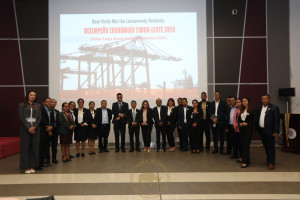National Economy Grew By 4% In 2024
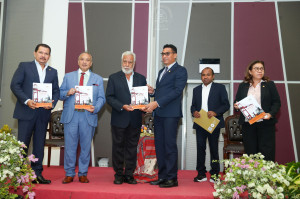
Timor-Leste's economic performance showed substantial progress in 2024, with Gross Domestic Product (GDP) rising by 4% compared to 2.4% in 2023. This growth reflects the ongoing momentum driven by increased public spending, investment, and macroeconomic stability.
During the presentation of the 2024 Economic Performance Report, held on March 21st, 2025, at the Ministry of Finance, Prime Minister Kay Rala Xanana Gusmão earmarked that “this growth reflects our collective efforts to strengthen the main economic drivers, particularly through the expansion of the public sector, which continues to stimulate private sector activities”.
The Head of Government also emphasised the importance of this report “as a guiding instrument for informed policymaking”, stating that “to reform, we first need to understand. To grow, we need to turn knowledge into action. So, let us use this knowledge to mould a more resilient and prosperous future for Timor-Leste”.
The Governor of the Central Bank of Timor-Leste (BCTL), Helder Lopes, emphasised that “in 2024, Timor-Leste's economy proved resilient despite global uncertainty. We saw growth driven by strategic investments and efficient fiscal management. Inflation remained controlled at 2.1%, reflecting the positive impact of the measures adopted to guarantee families' purchasing power and market stability”.
Budget execution reached 78%, one of the best performances in recent years, ensuring greater efficiency in implementing Government programmes. Economic growth and private investment also increased by 1%. 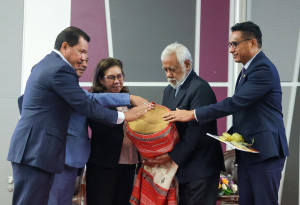
In the finance sector, credit extended to the private sector rose significantly, increasing by US$143.2 million, energising the business sector and enhancing access to finance. The banking sector has demonstrated resilience, with gradual improvements in financial indicators, fostering a favourable environment for economic development. 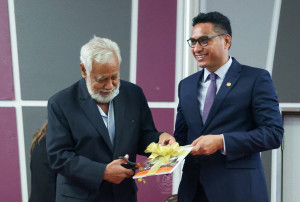
In the export sector, non-oil exports grew by 21.7%, showing the growing competitiveness of national products on international markets. Trade promotion and export diversification continue to be priorities to reduce external dependence and strengthen the trade balance. 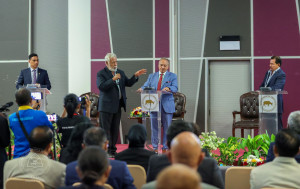
The Prime Minister also emphasised that “our economy continues to face structural challenges, including a high dependence on imports and an underdeveloped private sector”. To overcome these challenges, “the Government remains committed to fiscal consolidation, improving domestic revenue mobilisation and prioritising investment in sectors that promote sustainable development, such as agriculture, tourism and infrastructure”. 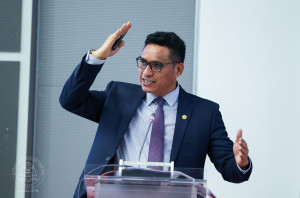
The Governor of the BCTL highlighted three main recommendations for sustainable economic growth: “It is essential to strengthen collaboration between all parties, focus on the development of productive sectors by maximising resources and consistently and continuously implement the economic policies initiated”. 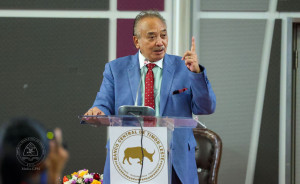
The Vice Prime Minister for Economic Affairs, Francisco Kalbuadi Lay; other members of the 9th Constitutional Government; the President of the Timor-Leste Chamber of Commerce and Industry, Jorge Serrano; representatives from the private sector, development partners, university students and members of the diplomatic corps also attended the event. END 